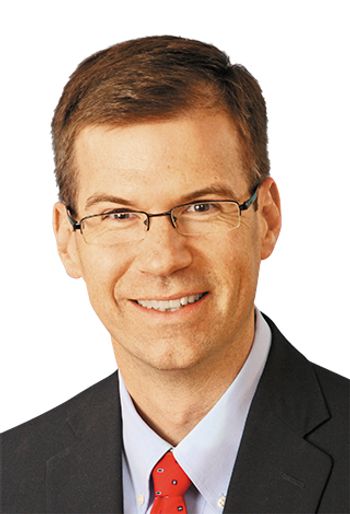
Does #MeToo apply to physicians, too?
Ever have one of those moments when you stop and question an assumption?
Dr. Rosevear is a urologist in community practice in Colorado Springs, CO. Urology Times blogs present opinions, advice, and news from urologists and other urology professionals. Opinions expressed by bloggers are their own, and do not necessarily reflect the views of Urology Times or its parent company, UBM Medica.
Ever have one of those moments when you stop and question an assumption?
I was sitting in a meeting of several well-respected physicians discussing trends in medicine. The meeting veered off topic a bit and one of the doctors made a less than polite comment about the recent decision by Starbucks to temporarily close its U.S. stores to hold anti-bias training. For those not familiar with the event or its background, a
At the time of the meeting, I remember thinking that we in medicine, while certainly not immune to biases, should be less susceptible to them as our training has made us more aware of both conscious and subconscious biases.
And I was wrong.
Also by Dr. Rosevear:
I was doing a robotic prostatectomy recently and after the case was approached by a senior nurse who questioned something I said during the procedure. Turns out I had offended one of the staff during the case. I know I have my own personality quirks while operating (we all do), but I thought the case went well and had no idea why I was being "investigated." What did I do? I apparently used the phrase "white is right" multiple times.
It’s true, I certainly used that phrase several times during the case. Why? Well, I do my urethral anastomosis by using two intertwined V-Loc stiches, one purple and one clear. To ensure that I keep the stitches on their correct side of the anastomosis, if for no other reason than it rhymes, the clear suture (which I refer to as white) is kept on the right side of the screen. Hence, every time I pick up that stitch, I quietly say to myself, "white is right"-a phrase that unbeknownst to me was picked up on the robot's speaker and broadcast throughout the operating room.
Want another example of how easy it can be to offend someone? I do most of my cases at a Catholic hospital and early in my career was called in front of a nurse manager to explain why I was praying over the patient before my ureteroscopies. Excuse me? Praying over the patient? The nurse said she didn't believe it either, so after it was pointed out to her that I was praying, she quietly observed me do it on each of the next two cases. Despite this being a Catholic hospital, such behavior needed to stop, she said, as it offended some of the operating room staff.
Was she correct? Again, sort of. Before each ureteroscopy, after the patient is prepped and draped and after the time out but before I start, I take my right hand (I am right handed, after all) and point to the patient's right side, followed by the left side, then put my hand down. I do it for no other reason than to confirm laterality, though in retrospect it does look like I'm making the sign of the cross.
Is this just political correctness overkill? Maybe, and until recently I probably would have simply ignored those episodes as funny, no-harm, no-foul episodes. But given all the recent attention paid to the #MeToo movement, as a business owner and a father of four beautiful (though recently less than well behaved) young girls, I started to question that assumption.
At work, what mechanisms do we have in place for reporting sexual harassment? Has my staff undergone training on how to report complaints? Do I have any staff (or dare I say partners) who are engaging in inappropriate behavior? Am I opening up myself or my business to potential liability? Am I doing anything in the office (without any conscious intent) that is being interpreted by the staff as harassing behavior?
Read:
I was unsure of the answers, so I approached my office manager and nurses and just asked. Turns out my office manager had a similar thought, had already spoken to the staff, and reported that none of the staff had voiced complaints about me, my partners, or the work environment. And yes, we do have policies and procedures in place for just such an unforeseen event.
But it did make me question, in a world where malicious intent is sometimes read into benign comments or actions, whether my assumption that the white coat I was given years ago would make me less susceptible to bias was really true. In retrospect, it certainly wasn’t.
Newsletter
Stay current with the latest urology news and practice-changing insights — sign up now for the essential updates every urologist needs.





